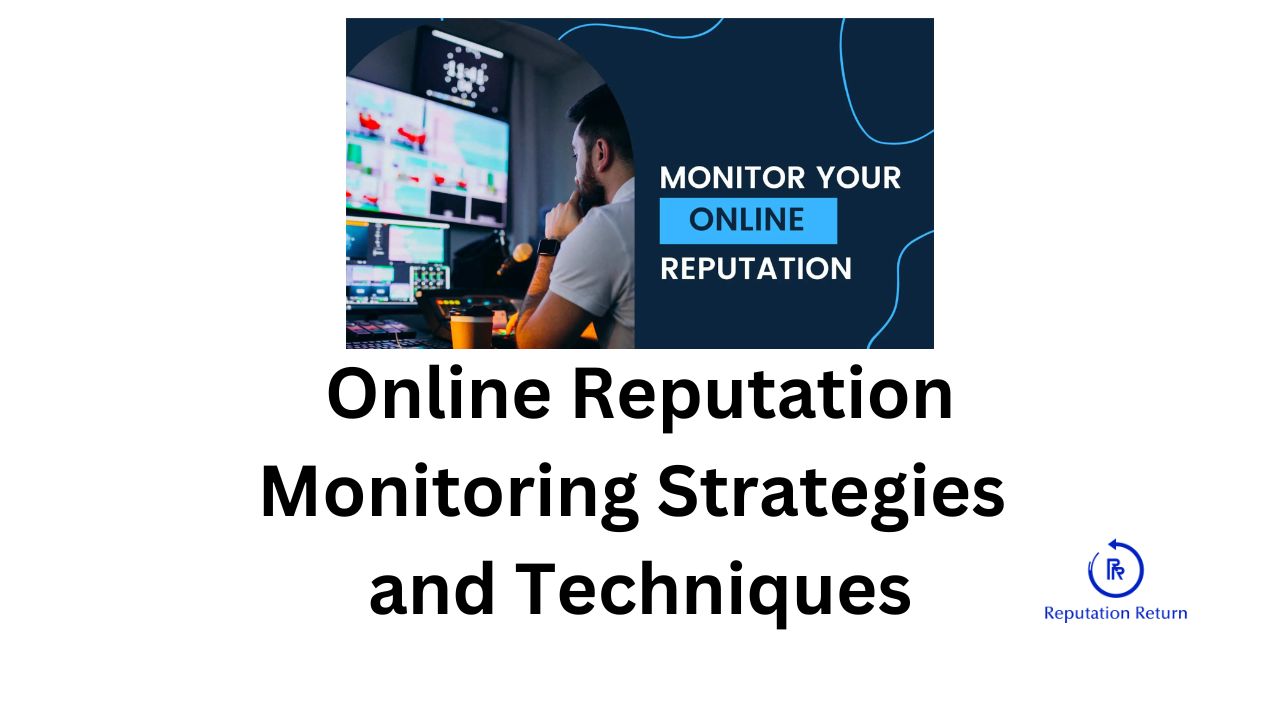Maintaining a positive online reputation is crucial for both individuals and businesses in the digital age. Effective monitoring helps you stay informed about how you’re perceived online and enables you to address any issues promptly. Here’s a list of strategies and tools to help you monitor your online reputation effectively.
- Set Up Google Alerts
• How: Go to Google Alerts, enter your name, brand, or relevant keywords, and choose how often you want to receive updates.
• Example: A small business owner sets up alerts for their company name and product names to stay updated on mentions across the web. - Use Social Media Monitoring Tools
• Tools: Hootsuite, Mention, Brandwatch, Social Mention
• How: These tools track mentions of your name or brand on social media platforms, allowing you to respond quickly to any negative comments or reviews.
• Example: A social media manager uses Hootsuite to monitor and manage multiple social media accounts, ensuring timely responses to customer feedback. - Regularly Search Your Name or Brand Online
• How: Perform regular searches on Google and other search engines using your name, brand, and related keywords.
• Example: An entrepreneur searches their business name monthly to check for new reviews, articles, or mentions. - Monitor Review Sites
• Sites: Yelp, TripAdvisor, Google Reviews, Trustpilot
• How: Regularly check these sites for new reviews and feedback about your business.
• Example: A restaurant owner checks Yelp and TripAdvisor weekly to respond to reviews and address customer concerns. - Use Professional Monitoring Services
• Services: Reputation.com, BrandYourself, NetReputation
• How: These services offer comprehensive reputation management, including monitoring, reporting, and addressing negative content.
• Example: A public figure subscribes to Reputation.com for continuous monitoring and professional management of their online image. - Track Mentions on News Sites and Blogs
• Tools: Feedly, NewsWhip, BuzzSumo
• How: Use these tools to follow news sites and blogs that might mention your name or brand.
• Example: A tech startup uses BuzzSumo to track mentions of their new product launch on industry blogs and news sites. - Check Forums and Discussion Boards
• Tools: BoardReader, Forum Finder, Reddit search
• How: Regularly search forums and discussion boards for mentions of your name or brand.
• Example: A video game developer searches Reddit for feedback on their latest game release to engage with the gaming community. - Monitor Local Listings
• Tools: Moz Local, BrightLocal
• How: Ensure your business information is accurate on local listing sites and monitor reviews.
• Example: A local service provider uses Moz Local to keep track of their business listings and respond to local customer reviews. - Use Analytics Tools
• Tools: Google Analytics, SEMrush, Ahrefs
• How: Track website traffic and analyze where your visitors are coming from, including referral sites that mention your brand.
• Example: An e-commerce store uses Google Analytics to monitor traffic spikes from referral sites mentioning their products. - Set Up Email Notifications
• How: Many review and social media platforms offer email notifications for new mentions or reviews.
• Example: A freelance graphic designer sets up email alerts on LinkedIn and Behance to stay updated on client feedback and endorsements. - Respond Promptly to Negative Feedback
• How: Develop a strategy for responding to negative comments and reviews in a constructive and professional manner.
• Example: A hotel manager responds to negative reviews on TripAdvisor with apologies and offers to rectify the issues, showing a commitment to customer service. - Engage with Positive Feedback
• How: Thank users for positive reviews and mentions, and share their feedback on your social media or website.
• Example: An author shares positive book reviews on their social media profiles, thanking reviewers for their support. - Regularly Update Your Content
• How: Keep your website, social media profiles, and other online platforms updated with fresh, positive content.
• Example: A fitness influencer regularly posts new workout videos and health tips on their YouTube channel and Instagram to maintain a positive and active online presence. - Conduct Regular Audits
• How: Periodically review all online profiles, listings, and mentions to ensure accuracy and address any issues.
• Example: A nonprofit organization conducts quarterly audits of their online presence to ensure their mission and activities are accurately represented.
Let us help you monitor and improve your online reputation. Learn more here >>>

